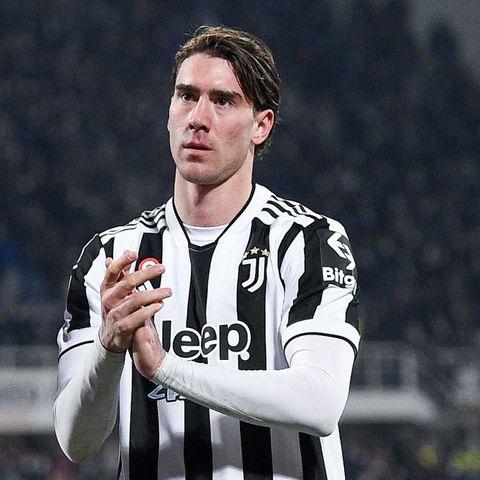In the high-stakes arena of Serie A football, where expectations are as lofty as transfer fees, every touch, pass, and missed opportunity is meticulously scrutinized. Few players embody this intense spotlight quite like Dusan Vlahovic, Juventus` prolific, yet often debated, center-forward. Recent remarks from football pundit Antonio Di Gennaro have reignited discussions about the Serbian striker`s form, suggesting a performance paradox that resonates deeply within the sport.
The «Not Bad» Conundrum
Antonio Di Gennaro, speaking on Tmw Radio, offered a nuanced take on Vlahovic, a player whose inherent talent has been undeniable but whose consistency has been questioned. «For me, Vlahovic is not bad,» Di Gennaro stated, a sentiment that might, at first glance, appear reassuring. However, the accompanying caveat — «but in recent years, at a technical level, he has deteriorated» — quickly shifts the perspective from simple commendation to a more profound concern. This isn`t merely about goal tallies; it`s about the fundamental mechanics and execution expected from a top-tier striker.
The pundit further elaborated on Vlahovic`s required mindset: «He must get his ideas straight, because he also had attitudes that I didn`t like.» This hints at more than just technical lapses; it suggests a psychological component, an internal struggle that can profoundly impact on-field output. For a player reportedly earning €12 million annually, the expectation is not just to be «not bad» but to be unequivocally excellent. Di Gennaro’s pointed question – «One who takes 12 million a year, it`s normal that he has to score 20-25 goals a year, or not?» – serves as a stark reminder of the immense financial stakes tied to performance in modern football.
The Pressure Cooker of Serie A
Serie A is a league renowned for its tactical complexity and unforgiving defenses. Strikers are often required to be more than just poachers; they must contribute to build-up play, hold up the ball, and press defenders with relentless energy. Vlahovic`s initial explosion onto the scene at Fiorentina showcased a player with explosive power, a predatory instinct, and a potent left foot. His transfer to Juventus was met with immense anticipation, seen as the heir apparent to the club`s illustrious line of goalscorers.
Yet, the transition has not been without its bumps. The shift from a primary attacking focal point to fitting into Juventus` often more structured and pragmatic system can be challenging. The demand for 20-25 goals isn`t just a number; it`s a benchmark for a striker expected to carry the attacking burden for a club of Juventus` stature. Falling short can transform «not bad» into a rather damning indictment, especially when juxtaposed with such a significant wage packet. It’s a subtle irony that a player deemed to possess immense talent finds himself in a position where mere adequacy falls far short of expectation.
The Path Forward: Regaining Edge
Di Gennaro’s casual comparison with Jonathan David, whom he would prefer to start, serves as a contemporary mirror for Vlahovic. David`s strong performances elsewhere highlight that current form and immediate impact often dictate selection, regardless of a player`s previous pedigree or market value. For Vlahovic, the path forward involves more than just finding the back of the net. It requires a concerted effort to address the reported technical regression, refine his approach, and demonstrate the kind of attitude that inspires confidence in teammates and coaches alike.
Regaining his cutting edge means focusing on the fundamentals: improving his first touch, enhancing his link-up play, and optimizing his movement off the ball. It also involves mental resilience—the ability to block out external noise and focus on his craft. The potential is undoubtedly still there; the challenge lies in unlocking it consistently within the demanding environment of Juventus and Serie A.
Conclusion
Dusan Vlahovic`s journey at Juventus is a compelling narrative of immense talent grappling with the monumental pressures of elite football. Antonio Di Gennaro`s assessment, labeling him «not bad» but highlighting technical decline and attitudinal concerns, underscores a critical juncture in the striker`s career. To truly ascend to the pantheon of Serie A greats and justify his substantial investment, Vlahovic must transcend the realm of mere potential. He must transform «not bad» into unequivocally brilliant, proving that his undeniable talent can translate into consistent, match-winning performances worthy of Juventus` storied history.

